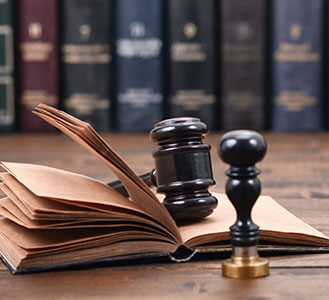Are you suffering from the loss of a loved one and/or did you or a family member get hurt by a drunk driver?
These situations can and should have been avoided, however, the fact remains that they do occur, and it is extremely important that you talk to a qualified attorney to immediately discuss the possibility of pursuing a personal injury lawsuit or Texas Dram Shop case.
WHAT IS THE TEXAS DRAM SHOP LAW?
Dram shop is a legal term in the United States referring to a bar, tavern or the like where alcoholic beverages are sold. Traditionally, it referred to a shop where spirits were sold by the dram, a small unit of liquid. Dram shop liability laws hold alcohol servers responsible for harm that intoxicated of age patrons or underage patrons caused to other people (or, in some cases, to themselves).
The statutory duty not to sell or deliver alcoholic beverages to intoxicated persons applies to and is intended to protect, among others, the intoxicated patron.
In Texas, Dram Shop Laws exist to protect the rights of Texans to live a safe and healthy life. The laws may protect you and your loved one’s ability to recover when harmed. Typically, a dram shop statute is only applied when it is proven that an establishment continued to serve alcohol when they knew that a person was visibly or obviously intoxicated. Talk to your legal counsel if you believe that you may have a Dram Shop case.
LEGAL ALCOHOL LIMITS IN TEXAS
Liability of the Drinking Establishment
The legal blood alcohol content (“BAC”) limit in Texas is .08%. A person exceeding this limit statistically has a much higher chance of causing an accident. At the same time, alcohol-fueled accidents tend to be more serious than those which don’t involve alcohol. Alcohol depresses the central nervous system which in turn slows down a person’s reflexes, making it harder to react and avoid an accident.
What’s the alcohol limit in a bar? The limit is “obvious intoxication.” Many signs of intoxication are clear and obvious. Things such as slurred speech, droopy or red eyes, cloudy judgment, lack of inhibitions, aggressiveness and poor balance all point to the fact that a person is obviously intoxicated. The number of drinks served to a customer can also be an indicator of whether or not the individual is obviously drunk.
Drinking establishments are NOT ALLOWED to serve alcohol to anyone who is already obviously intoxicated. If a bar employee notices that they’ve over-served a patron, they may opt to call a cab for the drunken individual in order to ensure that no one is harmed in a DWI accident. However, being responsible from the get-go by not serving an individual past the point of obvious intoxication should always be their first course of action.
SOCIAL HOST LIABILITY LAWS
In addition to dram shop laws, Texas also has a social host liability law. This law allows injured parties to seek damages from hosts aged 21 and older who served alcohol to minors who then caused injuries to another person because of their intoxication, if under § 2.02 of the Texas Alcoholic Beverage Code:
- The host knowingly served or provided alcohol to a minor or allowed the
minor to drink alcohol on his property, and
- At the time such alcoholic beverages were provided, it was apparent to the provider that the individual being sold, served, or provided with an alcoholic beverage was obviously intoxicated to the extent that he presented a clear danger to himself and others, and
- The intoxication of the recipient of the alcoholic beverage proximately causes damages, then the law may apply.
The violation of this law is a Class A misdemeanor, punishable by up to $4,000 in fines and up to one year in jail.
If you or someone you love has been injured by the negligence of a drunk driver who was at a bar, restaurant or establishment, contact our office and schedule an appointment to discuss your potential recourse.
These cases are complicated and complex. They are very fact-heavy and require diligence, investigation, and experts.
WHY IS MY CASE NOT A DRAM SHOP?
Some bars and restaurants may be protected by a sort of safe harbor to the Dram Shop law. It’s not exactly dram shop liability insurance, but if it can be proven that the establishment meets the requirements for safe harbor under Texas law, it may protect them from some of the liability in a tort case.
In some instances, a restaurant, bar, hotel, convenience store, or other seller of alcohol may entirely avoid liability under the Texas Dram Shop Act even if one of its employee’s actions violated the rule.
“Safe Harbor” Defense
TEX. ALCO. BEV. CODE § 106.14(a) provides:
(a) For purposes of this chapter and any other provision of this Code relating to the sales, service, dispensing, or delivery of alcoholic beverages to a minor or an intoxicated person or the consumption of alcoholic beverages by a minor or an intoxicated person, the actions of an employee shall not be attributable to the employer if:
(1) the employer requires its employees to attend a commission-approved seller training program;
(2) the employee has actually attended such a training program; and
(3) the employer has not directly or indirectly encouraged the employee to violate such law.
CONCLUSION:
Hiring a lawyer can help even the odds in a very complex fight. Navigating the complicated road of proving a dram shop case and bringing justice to a family or individual harmed by an intoxicated person is difficult. Don’t let yourself or your loved one get hurt twice, seek counsel from a dram shop lawyer in good standing with their respective state bar.
At Caquias Law Group, PLLC our legal team has experience working with toxicologists, accident reconstruction experts, and medical professionals to help get you the justice you deserve. Call today to schedule your free consultation with a personal injury DUI lawyer. We are here to help you.

 (210) 996-2237
(210) 996-2237





